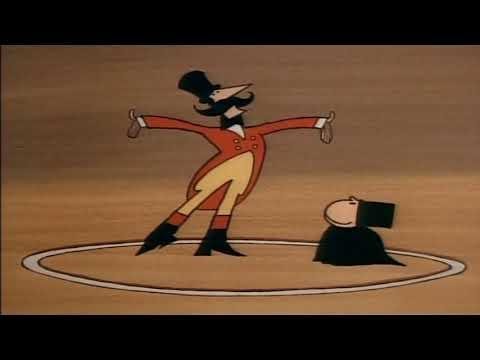Returning Balance to the 3 Branches

Remember Schoolhouse Rock? How a Bill Becomes Law was one of the catchiest PSAs ever to interrupt our morning cartoons. A more folksy tune, though, was Three Ring Government, which explained each branch and how they kept each other in balance.
We Gen Xers were maybe the last generation of young people to be spoonfed this characterization of the government. I don’t know when Grover Norquist first said, “My goal is to cut government in half in twenty-five years, to get it down to the size where we can drown it in the bathtub." But “Starve the Beast” (meaning to cut taxes to limit government) was first coined in 1978. By 1986, hundreds of Congressional legislators had taken the Tax Protection Pledge, vowing to cut taxes to stimulate economic growth. For as long as millennials have been alive, Republicans have been trying to eliminate the federal government.
That threat was always around the corner. Just as climate change was about to become a disaster starting in the mid-1970s, the threat (or promise) that the federal government would throttle back to a placid enabler of states’ rights has been around for as long as I can remember. But like climate change, the day has arrived to admit that what we feared has arrived.
The issue that triggered this realization was the Supreme Court’s decision this week that states do not have the right to eliminate an “oath-breaking insurrectionist” from the ballot without Congressional legislation. The per curiam majority in the Colorado v. Trump case went beyond deciding that CO couldn’t keep Trump off the ballot. They went further, saying (I think; it’s a pretty shitty decision) that Congress must pass “enabling legislation” that describes how the 14th Amendment applies in such cases. The concurring opinions from Justice Barrett, and separately Justices Kagan, Jackson, and Sotomayor, make clear that the ladies of the high court did not agree that legislation was necessary for Congress to make its wishes known, but beyond that, nothing is clear. The majority even asserts that Congress will need to come back before the Court for its imprimatur on whether their enabling legislation is holy enough to pass SCROTUS muster. I’ve decided to use SCROTUS to mean Supreme Court Republicans of the United States.
I’m inadvertently in the weeds on the larger point I want to make, which is that the Supreme Court has slowly and now all at once made it clear that they believe that their conservative super-majority is the sole arbiter of what is permissible in American law. Court watchers know that the Supreme Court is poised to end Chevron deference, the unsexy legal doctrine that courts should defer to federal agencies on matters requiring expertise. Under Chevron deference, nuclear scientists are considered to be better at regulating nuclear energy than, say, Clarence Thomas. Not so, says the Court. They alone know best. See also, Samuel Alito knows better than women how to manage their reproductive health.


Our political reality today is that the branches of government have gotten seriously out of balance. When Republicans said they wanted to drown the government in a bathtub, they didn’t mean the whole government. They just meant the democratically elected part of the government. It’s Congress with its pesky tax-and-spend powers and its accountability to the voters that they don’t like. And the best way to beat Congress was to join it, and muck it up so that it not only doesn’t pass laws, it also doesn’t hold the unelected overlords of the SCROTUS accountable. Congressional Republicans have acceded their power to the Supreme Court, and Democratic senators have gone along with this power vacuum in the name of civility.
This isn’t the first time in history that a do-nothing party has gummed up democracy by acceding power to a dominant Supreme Court. The GOP nearly ended the New Deal with Supreme Court decisions that overturned laws that had been passed to benefit the country. The famous “switch in time that saved nine” only happened when there was a plausible move to expand the Court and thus dilute its power. Despite calls to reform the Supreme Court again, neither Congress nor the President seems willing to tackle the issue, and I don’t really understand why, except again: civility.
As with climate change, I need to remind myself that despair is equivalent to denialism. It’s an election year - the best time to set aside cynicism and do the work. One of my goals this year (which I just made up now as I was writing) is to make a political engagement plan for myself and then stick to it. Here are a couple of good resources for getting involved. Vote Save America aggregates volunteer opportunities based on where you live and what races you want to work on. Vote Forward lets you write letters to other voters, reminding them to register or vote, without endorsing any particular candidate (but don’t worry, their lists are targeted toward Dem-leaning voters). I’m going to start with those two. I find writing a letter every time I get stressed out about something in politics helps me feel better.


